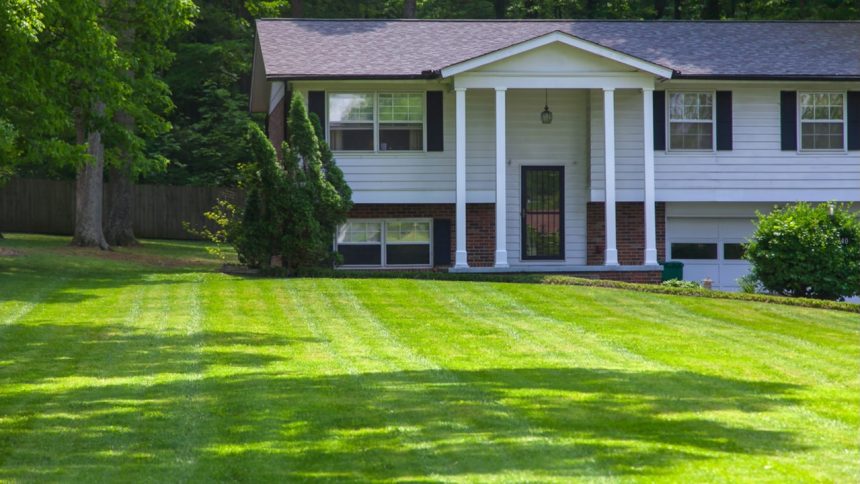Key takeaways
- A no-doc mortgage offers a way to get a home loan without some of the income and employment verification paperwork lenders traditionally require, like W-2s and pay stubs.
- Post Great Recession, no-doc mortgage loans are much harder to come by.
- No-doc loans often require higher credit scores and larger down payments than conventional mortgages do.
Applying for a mortgage involves a small mountain of paperwork, including bank and tax statements, pay stubs and proof of employment. If your income is irregular, though, or you lack some of the standard documents of a typical full-time employee, you might not be able to provide that documentation. In this case, you could be a candidate for a no-doc (short for “no documentation”) mortgage — a type of loan that doesn’t require the usual verifications.
What is a no-doc mortgage?
A no-doc mortgage — also referred to as a no-income verification mortgage — does not require a lender to verify how much you earn with pay stubs and W-2s. These types of loans are also sometimes called NINJA mortgages, which stands for no income, no job or assets.
“It’s an option that has existed for decades,” says Greg McBride, chief financial analyst (CFA) at Bankrate. “During the housing boom [of the early 2000s], though, this previously niche product came into contact with mainstream borrowers. That was a breeding ground for the problems that led to the housing bust.”
In the years leading to the financial crisis of 2007-09, no-doc mortgage loans tended to be offered by subprime lenders, not major financial institutions, McBride says. However, due to the complexities of the finance industry, even the biggest banks wound up with exposure to the risk of failing to verify a borrower’s ability to repay a loan.
Since then, “no-doc mortgages have gone back to being niche products,” says McBride. “They’re probably even more niche than they were before.”
How do no-doc mortgages work?
Historically, any no-doc home loan operated on an honor system: The borrower would state their income without providing any proof. The lender still reviewed their credit history, but it took the borrower at their word on how much they earned. The government has since addressed this.
“You generally cannot rely on what consumers orally tell you about their income,” the Consumer Financial Protection Bureau (CFPB) explains in its handbook for mortgage lenders. “You must verify a consumer’s income using documents such as W-2s or payroll statements.”
What federal laws must lenders follow when giving out a no-doc loan?
When lenders make a no-doc mortgage loan, they must adhere to what’s called the ability-to-repay rule. According to this rule, lenders cannot take borrowers at their word about income. Lenders must verify a borrower’s ability to repay a mortgage.
However, the CFPB offers flexibility for documenting how a borrower can repay. For example, a lender could use bank or other financial statements that highlight the borrower’s assets or investment income.
Who qualifies for a no-doc mortgage?
If you have the qualities listed below, you’ll be more like to qualify for a no-doc mortgage loan:
- Ample income
- Significant assets
- 30 percent or more down payment
- 700 credit score minimum
“These are not something available for your typical middle-class or upper-middle-class borrower,” says McBride. “It’s an offering for a high-net-worth individual with rather unique circumstances, such as an entrepreneur who runs a successful start-up and has plenty of equity in the company.”
Types of no-doc loans
No-doc mortgage loans come in different forms, and the best no-doc mortgage lenders each have their own requirements for this type of financing. To give you a broad overview of how your no-doc home loan could work, here are a few examples:
- No-income, verified-assets (NIVA) loans: With this kind of asset-based lending, the lender verifies your ability to repay with your liquid assets (like stocks or a retirement account).
- Bank statement loans: This route means using your past bank statements to prove your income rather than pay stubs and W-2s. This generally makes sense if you’re self-employed or otherwise aren’t receiving a traditional paycheck.
- No income, no assets (NINA) loans: These types of loans usually lean on rental property income to verify that you’ll be able to repay the loan. If you’re a real estate investor buying a three-unit rental property, for example, and the rent from two units will be sufficient to cover your mortgage payment, a NINA lender may be willing to extend financing to you.
No-doc mortgages vs. conventional mortgages
A no-doc home loan has the same benefit as conventional mortgages and other types of mortgages: It helps you borrow the money you need to acquire a property. Once you get the loan, it functions in the same way as a conventional mortgage, meaning you repay what you borrowed plus interest on a set amortized schedule.
However, the terms and credit requirements needed to get approved for a no-doc mortgage are different. Simply put, no-doc mortgage loans require higher credit scores and larger down payments than conventional mortgages do.
Even the best no-doc mortgage lenders also tend to charge higher interest rates. Why? Because a borrower who lacks full concrete evidence of regular earned income appears less creditworthy and loaning to them carries a higher default risk.
Conventional loan |
FHA loan |
No-doc loan |
|
|---|---|---|---|
| *Interest rate according to Bankrate as of 04/15/2024 | |||
| Minimum down payment | 3% down payment | 3.5% down payment | 30% or more down payment |
| Minimum credit score | 620 credit minimum | 580 credit minimum | 700+ credit minimum |
| Cost to borrow | 7.26%* (30-year fixed) | 6.92%* (30-year fixed) | Varies, but expect to pay several percentage points higher than conventional loans |
Should you get a no-doc mortgage?
Like just about any type of loan, a no-doc home loan comes with benefits and drawbacks to consider:
Pros
- A no-doc home loan can make it possible for someone without a consistent paycheck to buy a home.
- You can potentially get approved faster because these loans require less paperwork to submit and verify.
Cons
- Few lenders offer these loans in 2024.
- You’ll need a good credit score and lots of liquid assets to qualify.
- No-doc mortgage loans usually come with higher interest rates.
Because a no-doc mortgage will likely come with a higher interest rate, you should only explore this option if you can’t qualify for a traditional mortgage. Many lenders will work with self-employed borrowers to verify their income in alternative ways, which could mean you don’t need to get a no-income verification mortgage — and pay more in the process.
Where to find a no-doc mortgage today
While no-income verification loans do not exist in the same quantity — or even in the same form — as they did pre-Great Recession, there are some no-doc mortgage loans available, and they are part of a larger bucket of non-qualified mortgages.
You won’t find these products widely advertised, though, and if you’re researching mortgage lenders in search of a no-doc mortgage, you’ll find slim pickings. You’re more likely to find them through a portfolio lender, and in some cases, they might be referred to as a bank statement loan.
Alternatives to no-doc mortgages
If you’re not sure if a no-doc mortgage is the right path for you, there are a few alternatives to explore as well. These won’t all be no-doc options, though, so you’ll need to provide some documentation. Options include:
- FHA loan: Since these loans are backed by the government and carry less risk for the lender, you might have an easier time getting approved. This option only requires a 3.5 percent down payment, as well.
- Non-qualified mortgage: This is a type of non-conforming loan that, similarly to no-doc mortgages, verifies income through alternative ways. While this option has less strict qualifying criteria, it often comes with higher interest rates.
- All-cash purchase: For high-net-worth individuals or those with a lot of liquid assets, you can bypass mortgage financing altogether and buy a home with an all-cash offer.
Read the full article here
















